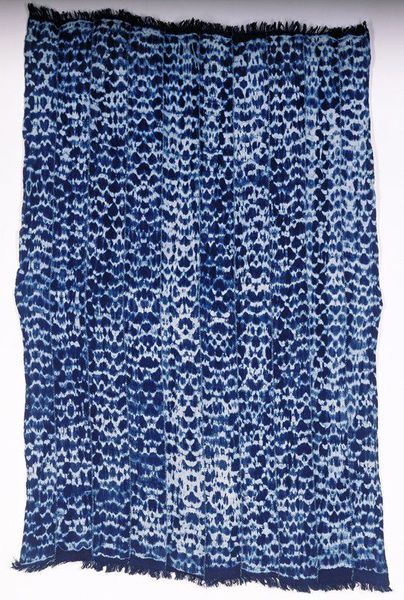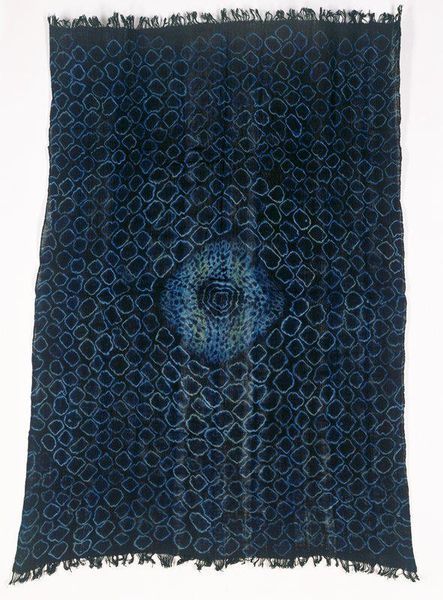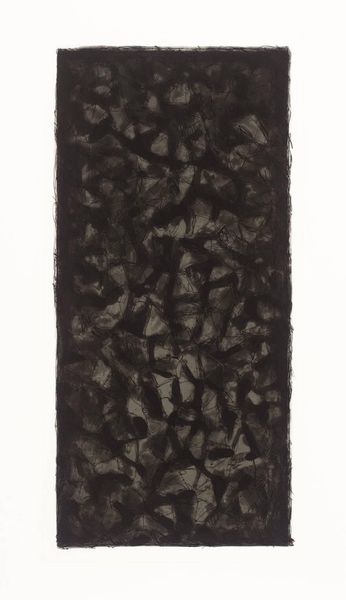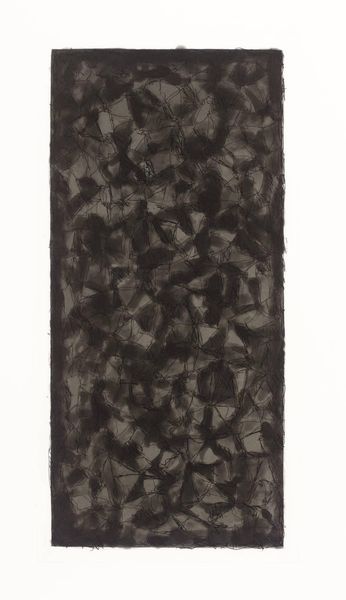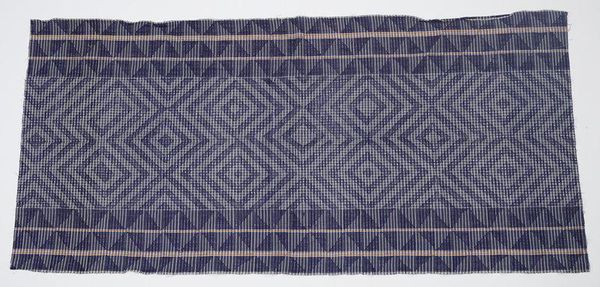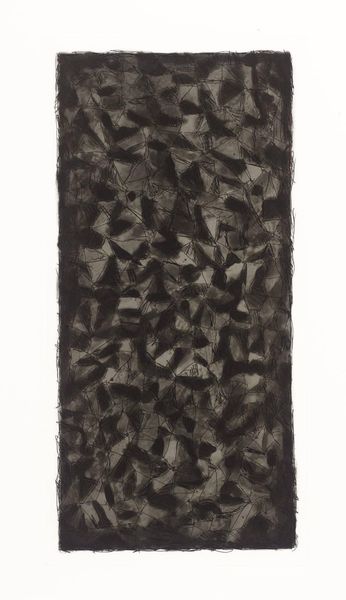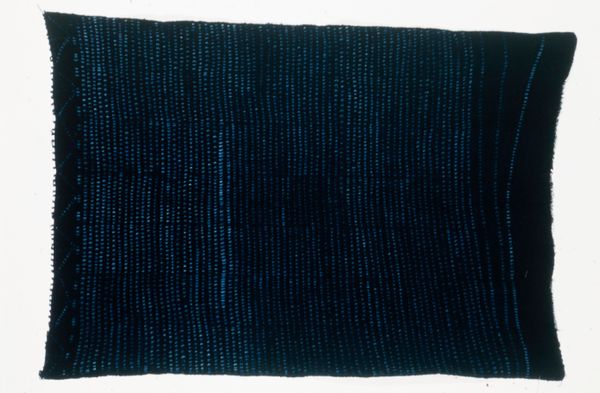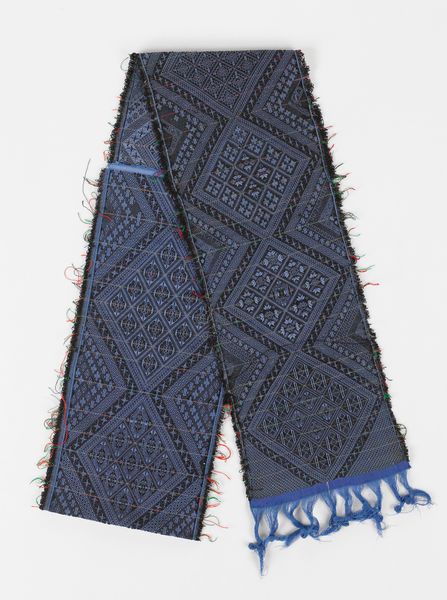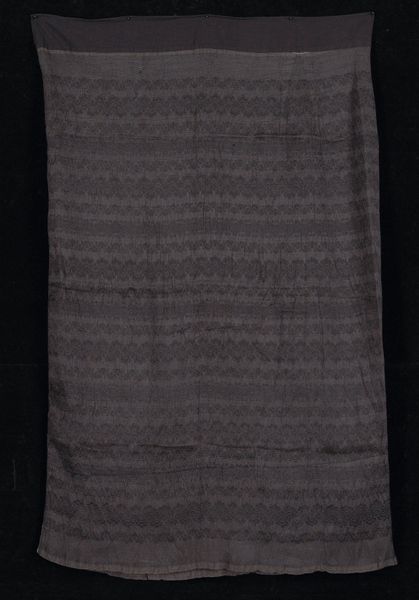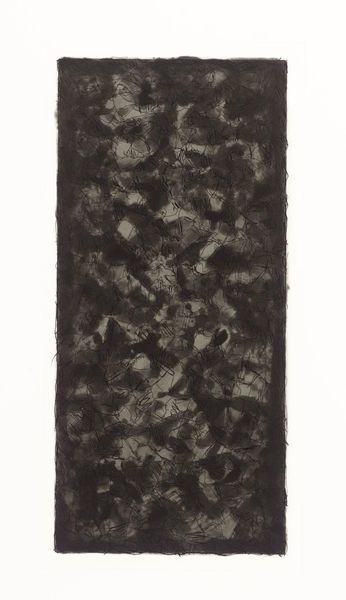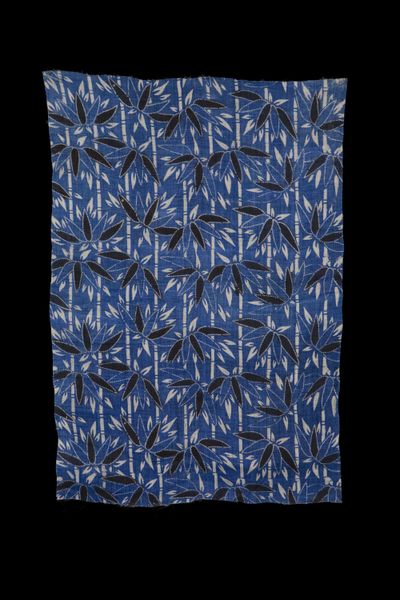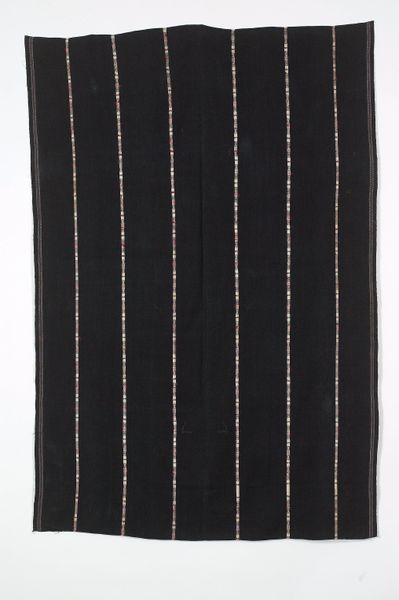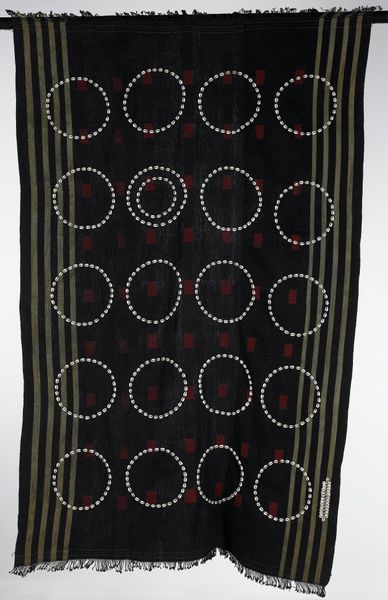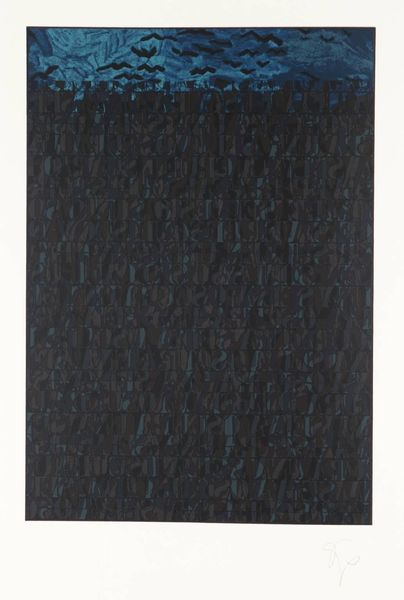
mixed-media, textile, cotton
#
mixed-media
#
textured
#
textile
#
abstract pattern
#
organic pattern
#
geometric
#
abstract-art
#
cotton
#
abstract art
Dimensions: 42 3/4 x 58 in. (108.59 x 147.32 cm) (irregular, without fringe)
Copyright: No Known Copyright
Editor: This stunning piece, "Woman's wrapper" by M. Kouadio N'Gri Bernard, was created in 1999 and is a mixed-media textile made from cotton. I am drawn to the repeated geometric shapes and the rich indigo dye. What's particularly striking is the optical effect. How do you interpret this work within a larger historical context? Curator: I see this wrapper as a fascinating example of contemporary textile art building upon, but also subtly subverting, historical precedents. Consider the traditional indigo dyeing techniques prevalent in West African textiles for centuries. This artist is not simply replicating tradition. Look closely. It plays with our expectations of symmetry and precision. Does the central diamond *perfectly* align? No. Editor: I see what you mean, the subtle imperfections give it a handmade, personal feel. Curator: Exactly. It's crucial to recognize the politics embedded within these artistic choices. The "imperfection" can be read as a commentary on standardized modes of production imposed by colonial systems. This artist seems to reclaim individuality and cultural specificity within a globalized art world. This kind of work asks a really critical question. Who gets to decide what constitutes "art" and what historical narratives get centered in museum spaces? Editor: That makes me think about how the wrapper, an everyday object, is elevated to fine art and presented in a museum context. It challenges our definitions. Curator: Precisely. And who historically was allowed to make art for these high art spaces, and what kind of object was deemed ‘worthy.’ Editor: I never thought about it that way, so seeing the history within this is so important, I’ll never see these works the same way again! Curator: It's exciting, isn't it, when an artwork opens up new avenues for questioning established norms and re-evaluating the stories we tell ourselves about art and culture.
Comments
No comments
Be the first to comment and join the conversation on the ultimate creative platform.
